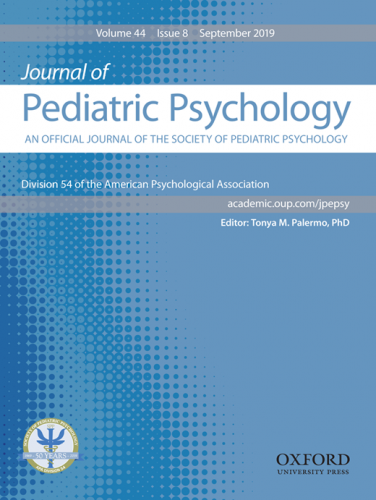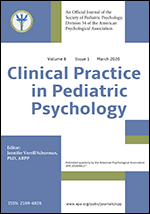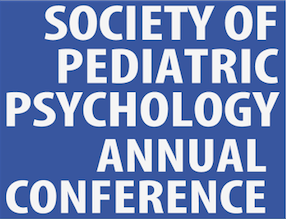Fact Sheet: Palliative Care in children and adolescents
Pediatric Palliative Care (PPC) is an interdisciplinary approach that provides comprehensive physical, psychosocial, and spiritual care targeting the prevention and relief of suffering among children and families facing chronic and/or life-limiting illnesses.
Prevalence
As of 2012, 69% of children’s hospitals in the United States offered PPC services. Of these programs, less than 6% employed a full-time psychologist, creating a service gap that non-PPC psychologists are called upon to fill. Although data are limited, recent research suggests approximately one-quarter to one-third of pediatric patients who die in the hospital are followed by PPC providers, with primary clinical conditions including genetic/congenital, neuromuscular, cancer, respiratory, and gastrointestinal.
Health and Psychosocial Consequences
Children receiving PPC services may experience a range of physical (e.g., pain, fatigue, shortness of breath), emotional (e.g., depression, anxiety), and behavioral (e.g., dysregulation, non-adherence) symptoms. Complexities in PPC populations (e.g., extended time in intensive care settings, medical decision making, end-of-life considerations) also place family members (e.g., parents, siblings) at heightened risk for post-traumatic stress, anxiety, and depression. Caregivers may also experience barriers in communication among providers across medical specialties, discrepancies in treatment goals with staff or their child, fears and uncertainty related to their child’s outcomes, and regret if they did not communicate about death at end-of-life.
Evidence-based Assessment
Pain, fatigue, depression, anxiety, and sleep are commonly evaluated domains in PPC. Assessment of spiritual well-being, existing social supports, co-occurring family stressors, patient and family satisfaction with care, and communication about medical status and decision-making may also be pertinent. No psychological assessment tools have been specifically developed for PPC; however, tools that assess a broad range of domains (e.g., PedsQL, PROMIS instruments) have evidence to support use within PPC.
Culture, Diversity, and Demographic Factors
PPC services are underutilized among ethnic minorities, with up to 40% of pediatric health care providers identifying family cultural differences as a frequent barrier to adequate PPC services. Specific cultural themes identified as impacting PPC include cultural influences on decision making (e.g., family structure and hierarchy, emphasis on autonomy versus interdependence); spiritual beliefs and formal religious involvement; verbal and nonverbal communication practices (e.g., language barriers, tactile gestures); beliefs about sharing information with children about their illness; interpretations about the purpose of pain and suffering, as well as beliefs about the causes and existential meanings of illness and death; and logistics (e.g., location, body handling) during end-of-life care. Certain cultures may also have different beliefs and preferences toward complementary and alternative medicine (e.g., acupuncture, healing rituals, herbal treatments).
Evidence-based Psychological Interventions
Psychological interventions in PPC aim to reduce symptom burden. This may include cognitive-behavioral therapy, relaxation, and pain coping. Acceptance and mindfulness-based approaches may be particularly advantageous with terminal patients. Another primary treatment target in PPC is facilitating collaborative communication between the patient/family and the medical team regarding goals of care and treatment preferences. Tools such as Five Wishes, Voicing My Choices, and My Wishes can facilitate discussions about advanced care planning preferences.
Resources
- https://www.ninr.nih.gov/sites/files/docs/NINR_508c_AtaGlance.pdf
- https://www.capc.org/toolkits/designing-a-pediatric-palliative-care-program/https://www.uptodate.com/contents/pediatric-palliative-care
Authors: Rachel A. Kentor, PhD, Amy Fahrenkamp, PhD, and Jarred Gallegos, MS
Date of last update: October 2019
References
- Feudtner, C., Kang, T. I., Hexem, K. R., Friedrichsdorf, S. J., Osenga, K., Siden, H., ... & Wolfe, J. (2011). Pediatric palliative care patients: a prospective multicenter cohort study. Pediatrics, 127(6), 1094-1101.
- Feudtner, C., Womer, J., Augustin, R., Remke, S., Wolfe, J., Friebert, S., & Weissman, D. (2013). Pediatric palliative care programs in children’s hospitals: a cross-sectional national survey. Pediatrics, 132(6), 1063-1070.
- Hays, R. M., Valentine, J., Haynes, G., Geyer, J. R., Villareale, N., Mckinstry, B., ... & Churchill, S. S. (2006). The Seattle Pediatric Palliative Care Project: Effects on family satisfaction and health-related quality of life. Journal of palliative medicine, 9(3), 716-728.
- Stutz, M., Kao, R. L., Huard, L., Grotts, J., Sanz, J., & Ross, M. K. (2018). Associations between pediatric palliative care consultation and end-of-life preparation at an academic medical center: A retrospective EHR analysis. Hospital pediatrics, 8(3), 162-167.
- Wiener, L., McConnell, D. G., Latella, L., & Ludi, E. (2013). Cultural and religious considerations in pediatric palliative care. Palliative & supportive care, 11(1), 47-67.



